Graham Ellis - Regular updates - my diary
Why is a big double decker running up my street?
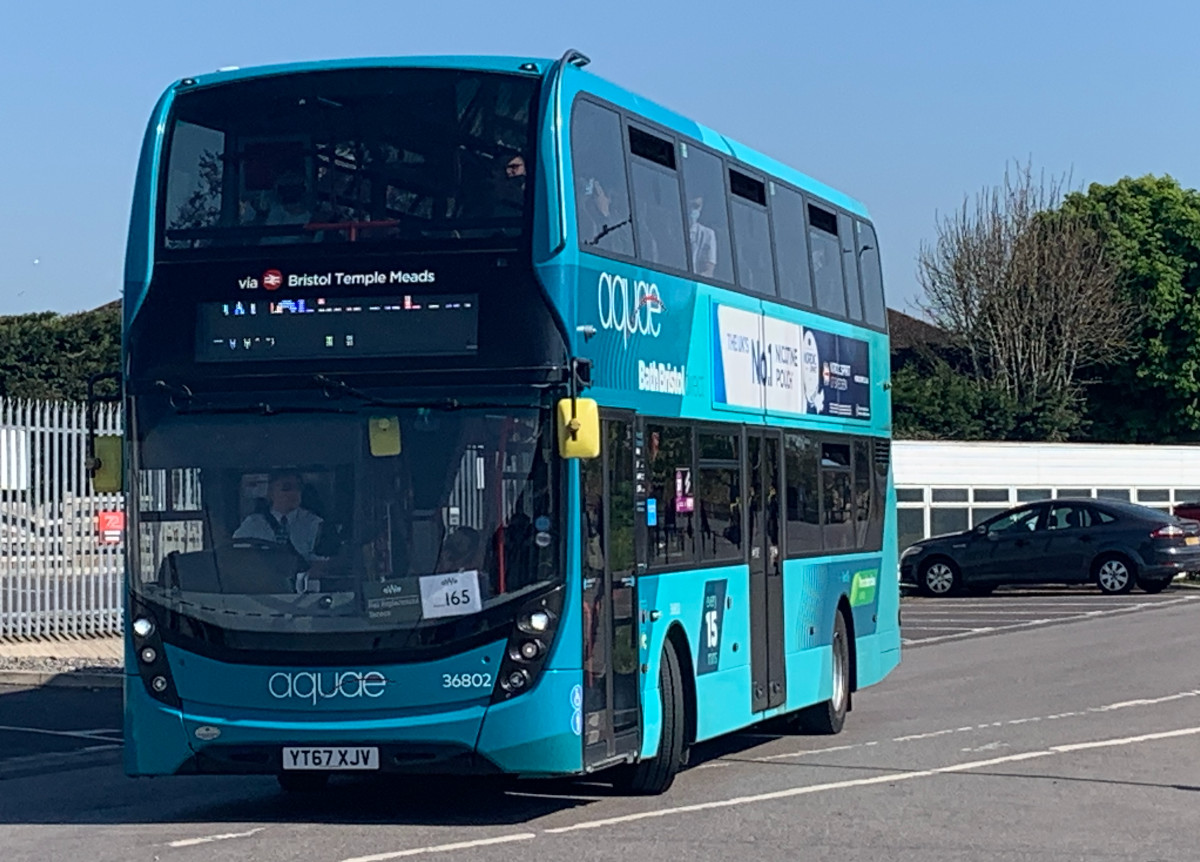 "Why is a double decker running around my town / village with very few people on it? Isn't that wasteful? Wouldn't it be better to use minibuses or taxis?" Good questions - asked of me in multiple community areas, including my 'home' area of Melksham. So here's an answer - feedback of the sort of thing I've been doing for years via www.passenger.chat and would do on local matters if elected to Town Council.
"Why is a double decker running around my town / village with very few people on it? Isn't that wasteful? Wouldn't it be better to use minibuses or taxis?" Good questions - asked of me in multiple community areas, including my 'home' area of Melksham. So here's an answer - feedback of the sort of thing I've been doing for years via www.passenger.chat and would do on local matters if elected to Town Council.Answer / explanations
1. Could buses be switched around?
Buses run on "diagrams" - back and forth all day, some on the same repeated journey and some on different routes through the day. There will be busier times (travel to work, travel to education, just after 09:30 when senior cards become valid) and quieter times when these don't apply. There will also be busier and quieter sections of routes too; a really good example quoted to me is the X5 Swindon to Salisbury bus which loads well at the route ends for a double decker, but is quieter in the middle.
The bus used on a diagram needs to have enough capacity for its busiest time, and for the busiest part of its route. Observers not around at that time, or on the busiest part of the route, will never see a full bus and will ask the "do we need such a big bus" question; the answer is really "yes, for what else it is doing on the diagram".
Another suggestion made has been to have big buses for the peaks, and smaller vehicles off peak. The cost of extra vehicles is very high, and the time taken to get back to depot and switch a significant overhead. Switching vehicles between routes can sometimes provide a little help, but peaks loadings tend to happen at the same time of day on all routes. There are times where switching a vehicle that's run during the day on one route to another route in the evening helps, but even there a quiet mid-evening can be followed by a crammed late service. Even before CoVID social distancing, the 23:20 Bath to Melksham and Devizes really needed (but did not get) a double decker.
The question has also been asked about splitting routes. Running (say) a double decker from Bath to Melksham on the 272, then a single decker onward to Devizes. To some extend that has already been done - the 272 used to run from Bath to Easterton, but now the section furthest from Bath is the 270, sometimes but not always a vehicle change in Devizes for through passengers. But - people don't like changing bus too often, time is taken to change, and any delay to one incoming bus at the swap point leads to a delay to two ongoing services, or very annoyed passengers who have missed their connection.
So - splitting routes and switching vehicles have some application, but much (or most) of that has been done already for commercial reasons.
2. Can any bus go anywhere?
No ... some of the routes through residential areas require a smaller vehicle to get around all the parked cars that were not expected when the areas were built, or are areas that were built more recently without allowing for full sized buses.
No ... only buses that are up to "Euro 6" standards can run into Bath unless the operator of none-compliant vehicles is prepared to pay £100 per vehicle per day. Local fleets are mixed ... in one case, a bus route has been temporarily changed because its operator is awaiting delivery of smaller (village compatible) Euro 6 (Bath compatible) vehicles.
No ... low bridges and low hanging trees restrict double deckers
3. Do double decker buses double the fuel consumption?

No. They do consume more - but only around 25% more. Here's a diagram showing some typical figures. Where buses are running at reasonable load levels, the fuel consumption per seat is the figure to look at, so you take a bus seat 3 times the distance you take a taxi seat on the same fuel consumption.
But bear in mind that this comparison should be short term in detail as we move towards alternative (electric) vehicles. I would anticipate that a larger vehicle will still use more energy, but less energy per seat.
4. How sure can we be of what loading will be from day to day?
On a very frequent bus service, "we're full - wait for the next one" is reasonable, but on a service that only runs every half hour or less, it is not. Here in Wiltshire, we don't have the massive fluctuations based on weather that you'll find in seaside towns. And actually the bus operator can make pretty good educated guesses. But, still, they need a fleet of vehicle that copes with most peaks, and that will sometimes mean sending out a bigger vehicle than necessary.
I was ... amazed ... to hear of a double decker on last Saturday's Rail Replacement service from Westbury to Chippenham. It's in the photo at the head of this piece at Melksham Station. Typically, most train regulars avoid travelling on "trains replaced by buses" days, and furthermore we are still under some restrictions, people not moving around as they did a couple of years ago. However, from my personal observation, the bus was busy and under social distancing rules, the use of a double decker was necessary and correct. Top marks to whoever figured this out ahead of time!
5. Are double deck buses slower / less attractive?
From loading and unloading times, they can be - especially with modern health and safety which waits for everyone to be seated at each stop before they move off. Time issuing tickets / checking passes is also extended.
On 'thinner' routes, traffic may be significantly higher if 3 smaller vehicles (such as Optare Solos) run in an hour, rather that one double decker. It's a more attractive service, but it does mean up to 3 times the number of drivers, more bus bays needed at hubs and bus stations, and more road congestion.
Conclusion(s)
For the most part, the bus operators are being efficient, and the routine appearance of lightly loaded double decker buses on your street is worthy of asking about, but you can be re-assured it's not far off the best arrangement possible at the moment.
And, remember, that just at present England is slowly re-opening. Public transport use has been really depressed and that's what you may have observed. But already growing back in places; 9 got off and 6 on a lunchtime single decker on 272 (Bath to Devizes) I saw the other day - add in the through passengers, and it can't have been far short of social distanced capacity!
Published Tuesday, 27th April 2021
Wiltshire - how each vote works (PCC, Unitary and Town/Parish)
 On 6th of May 2021, or earlier if you have applied for a POSTAL vote, you'll have the opportunity to vote in THREE separate election in Melksham.
On 6th of May 2021, or earlier if you have applied for a POSTAL vote, you'll have the opportunity to vote in THREE separate election in Melksham. The POLICE AND CRIME COMMISSIONER election takes place across the whole of Wiltshire and Swindon, and is to select a single person for that role. Take a look at the Association of Police and Crime Commissioners website for a description of the role. There are six candidates - see the BBC for a brief introduction to them all.
You have two votes in this poll - a first and second preference. All first preference votes are counted first, and the lowest four candidates on that count eliminated, leaving a "head to head" between the two remaining candidates. If one of them already had over half the total votes cast, he or she is declared the winner. If not, the second preferences from those who voted for the candidates eliminated are taken into account, where those votes are for one of the two remaining candidates. The candidate with the highest total of first preference and transferred second preference votes is then declared the winner.
Let's take an example. From the first round ...
A gets 25% of the vote (of valid voting papers)
B gets 4% of the vote
C gets 38% of the vote
D gets 9% of the vote
E gets 22% of the vote
F gets 12% of the vote
So candidates B, D, E and F are eliminated, leaving just candidates A and C going forward to the second round of counting. Together, B, D, E and F accounted for 47% of the votes cast. For our example, lets say that of those 47%
10% did not give a second preference (so they are not added to either second round candidate)
15% gave a second preference to another of B, D, E and F (so they are not added on either)
18% gave a second preference to Candidate A who now has the votes of 43% of those who voted
4% gave a second preference to Candidate C who now has the votes of 42% of those who voted
So Candidate A is our new Police and Crime Commissioner. That's even though (s)he was behind after the first round.
The WILTSHIRE UNITARY COUNCILLOR election takes place. 98 councillors are elected for 98 geographic divisions across the Unitary Authority, with the election taking place on a first past the post system. In the ward in which I live, we have four candidates and I can vote for one of them. The number of candidates may vary in other divisions.
Let's take an example.
Candidate A polls 30%
Candidate B polls 9%
Candidate C polls 38%
Candidate D polls 23%
So Candidate C is elected as the Unitary Councillor for the division
The TOWN AND PARISH election takes place (where there are more candidates than seats). In the ward in which I live, there are seven candidates for four seats. Each voter can select up to four candidates to vote for, and the four candidates with the highest number of votes on valid papers will be elected to the Town or Parish Council.
Let's take an example (actual numbers from a Melksham ward last time)
A polls 409 votes
B polls 420 votes
C polls 423 votes
D polls 308 votes
E polls 614 votes
F polls 559 votes
G polls 479 voles
So Candidates E, F, G and C are elected as Town Councillors with A B and D not getting enough votes.
Declaration of interest - I am standing for election as a Town Councillor in my home ward of Melksham South - and you can learn about me here. I am standing as an INDEPENDENT candidate, though very much looking to work in partnership with everyone else if elected. One of my strengths is understanding, and feeding back that understanding to the community, as I hope this article has done.
Published Monday, 26th April 2021
Melksham Markets
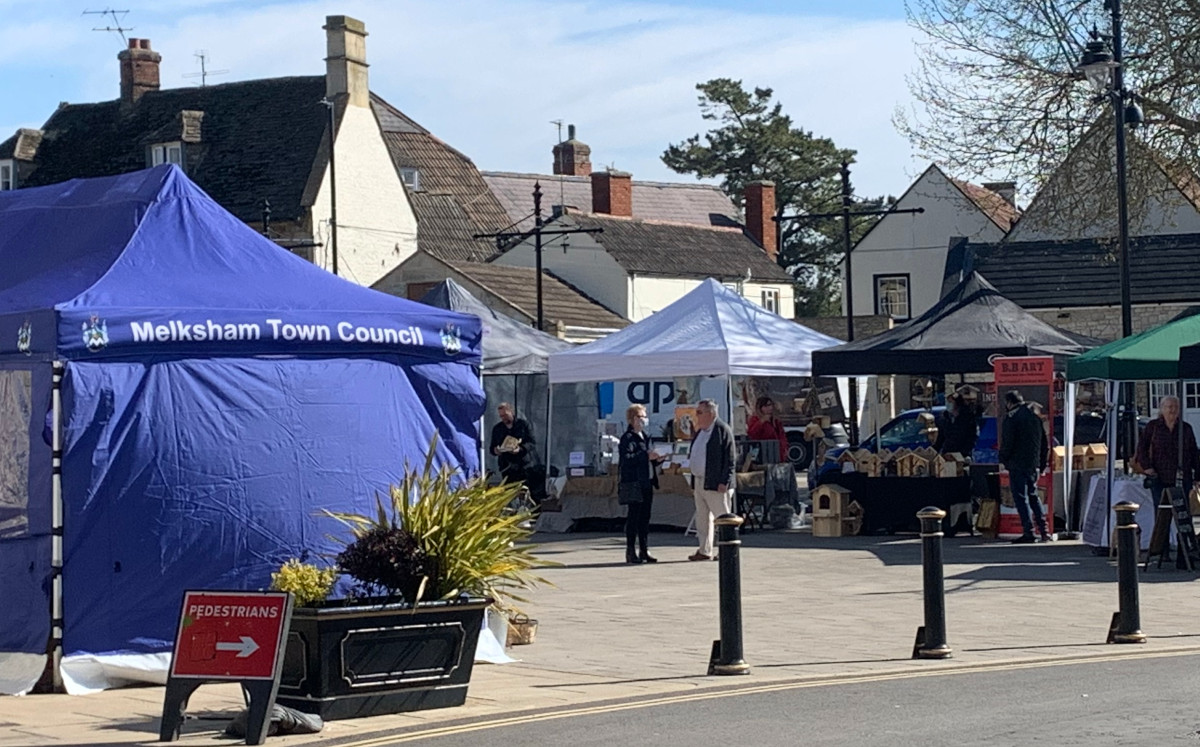 Melksham's Town Council has taken on the role of supporting businesses in the Town Centre, and markets and activities of various type whether organised by themselves or other groups.
Melksham's Town Council has taken on the role of supporting businesses in the Town Centre, and markets and activities of various type whether organised by themselves or other groups.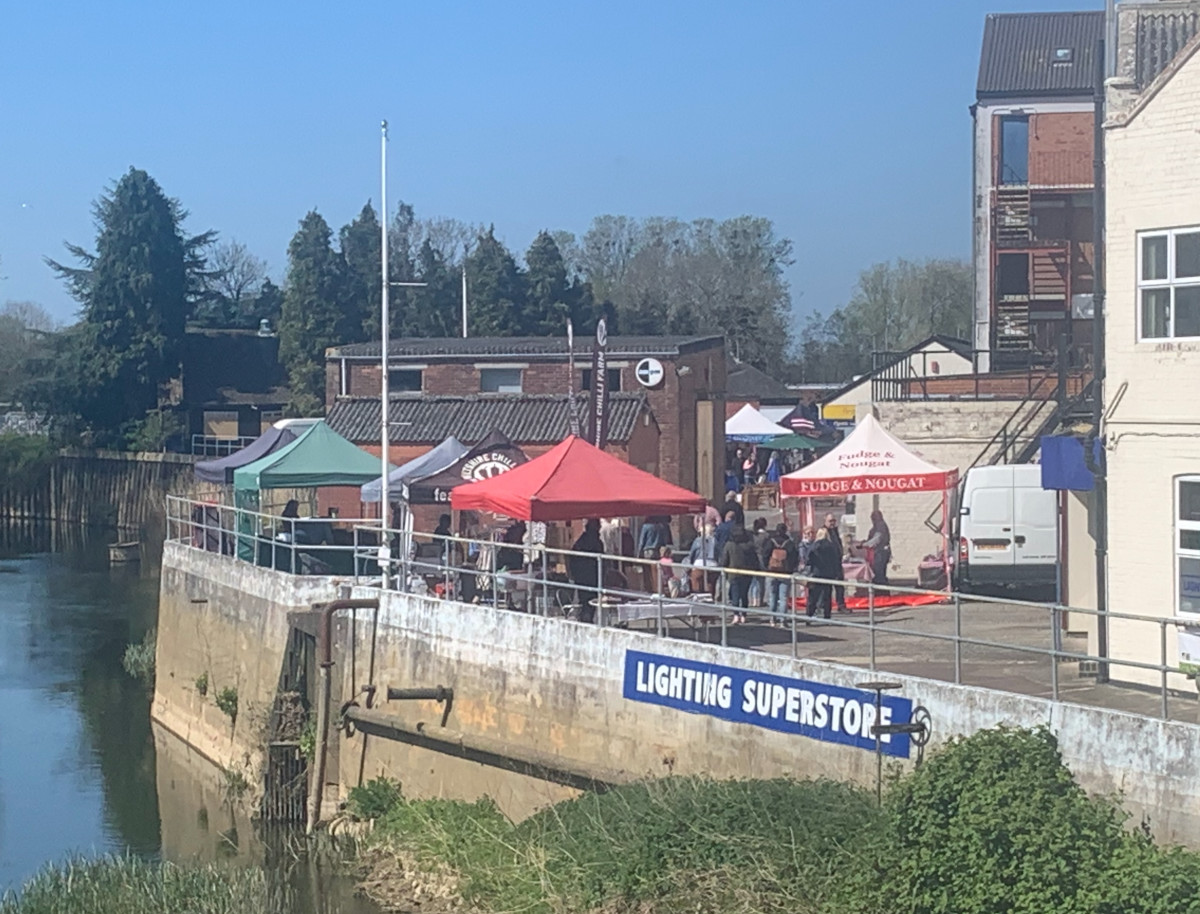 Pictured here, Saturday 24th April 2021 - the monthly Melksham Maker's Market in the Market Place, and Sunday 25th April 2021 the Atirsan's Market at Avonside, privately organised but blessed by the Town Council. These are in addition to the weekly produce market on a Tuesday, and special events such as the funfair and Christmas lights in the lead up the festive season.
Pictured here, Saturday 24th April 2021 - the monthly Melksham Maker's Market in the Market Place, and Sunday 25th April 2021 the Atirsan's Market at Avonside, privately organised but blessed by the Town Council. These are in addition to the weekly produce market on a Tuesday, and special events such as the funfair and Christmas lights in the lead up the festive season.As the weather gets warmer, King George Park, Splashpad, Skate Park, River activities all get busier and bring out the people who have been stut inside for all too long - so good to see this. There is a balance between the Town Council keeping a very low precept and spending money on oiling the wheels of this sort of activity. And it's a fine balance that not everyone will agree on. However, having run a customer based business in the Melksham Area for 20 years where we balanced the books, paid our way and got top-notch reviews, I feel qualified to be elected as one of your town councillors to pilot the balance forward - the very best for the town and its residents, in a very cost effective way.
South Ward, 6th May 2021, vote for GRAHAM ELLIS as one of your Town Councillors for the South Ward.
Published Sunday, 25th April 2021
It IS possible to slash private car mileage and still get around!
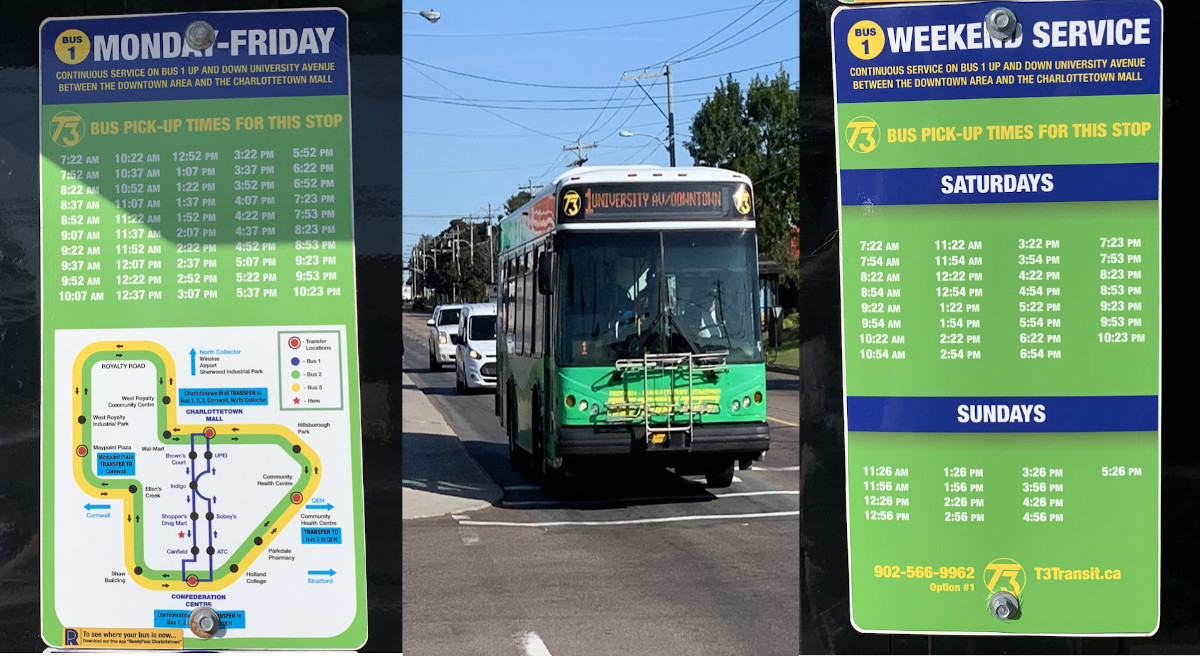
By 2018, I was driving 3,000 miles a year.
And that is from Melksham
I was travelling just as much, just as far, but I had switched to covering most of my mileage by traion, with some by bus, coach or, occasionally for "the final miles" a taxi or lift. Some trips remained by car; it was not a public transport zealot approach. Very, very occasional flights - even international, there most visits to Switzerland, Denmark, Spain, Canada and Ireland were made in latter years by rail and ferry.
Image - Canada without flying or driving (just a taxi to Melksham Station. Charlottetown, Prince Edward Island - about the same population as Chippenham or Trowbridge.
Why the change?
Because, if I travel by rail, I can relax, work, eat and drink, read along the way. My time and concentration is not occupied by piloting my vehicle, and my energy not drained by doing so. And after a long day's work across the country from home, I could still travel home in safety rather than being tempted to drive when something of a risk, through fatigue, at the wheel.
Travel by rail can be expensive, though it need not be. There is a very wide range of fares available and (with knowledge and skill) it's often possible to travel at a fraction of the cost of an anytime ticket bought as you set off. Sadly, the system is overcomplex and not really fit for purpose (if that purpose is to offer the encouragang good fares to people). As an IT person, I will admit to enjoying the challenge of travelling at bargain prices. But, yet, even with the more expensive tickets it may be less expensive than driving if it saves a night away in a hotel.
I will admit - my slashing of driving in favour of rail was not done initially with a view to reducing my carbon footprint, nor with a review to reducing the dirty air, particulates and noise I was putting out. But as those have come to the forefront, I'm delighted to be able to do my bit, and where a journey is otherwise balanced for me otherwise, I will as a matter of course choose train, bus, cycling or walking over driving myself.
Additionally, other changes over time have allowed public transport to be practical where it wasn't 10 years ago. An increase from 2 to 8 trains each way at my local station (something I campaigned for and now partner to promote to others) now provides a train within an hour or two of when I need it for the most part. And technology / computers getting physically smaller meant that I could hand (or backpack) carry my tools of trade for many more journeys.
What has been a fortunate change over the years is becoming much more a mandated one for the medium and long term as environmntal and climate issues come centre stage. Ironically, Coronavirus has in the short term pushed public transport onto the back foot, and in the medium term it's likely that aftereffects such as far more people working from home will change the whole look of the peak hours, with significant (some positive) on public transport costs.
Take a look at this BBC article to get an idea of just how much better using public transport is than a typical private car. For sure, electric cars somewhat better than fossil fuelled ones - but the same applies to buses and trains as you compare
Is this an example others could follow?
Looking to your street in [insert town name], there's only a 50% chance that you'll be able pull your car right up to your house / onto your property to recharge. Current recharge periods make it impractical to stop at a "service station" and get recharged anything like as quickly as fossil fuel - at present it's around 50 times slower. Then you have the question of whether we have the infrastucture in place to generate (in a sustainable way) all that electicity to charge the cars, to distribute it, and to cope with the traffic jams of electric cars that will replace traffic jams of fossil fuel cars
Electric car 100 miles in 35 minutes (source of data)
Fossil fuel car 700 miles in less than 5 minutes (source of data)
Other technoligies may come along too ... I wonder (for example) about battery changing stations where you can unplug and empty, plug in a full and carry on. Hydrogen has been mentioned too.
I changed over from my own transport to public transport for longer journeys when it became viable a few years ago. And we are now running one car not two. Melksham's train service has moved from useless a decade ago to thin but usable today - there's a long way to go yet. From 3,000 journeys per annum, outside Covid train use has risen to 75,000 journeys per annum already - and to catch up with other Wiltshire towns that have stations, it should rise to 250,000. But then in a changing world, Melksham and the other towns will carry on far beyond that quarter of a million.
For Buses - the government is taking an overdue look with a new strategy announced in March - see where I wrote about this. And this time it involves the community's requirements as well as local government and operator inputs. Some operators may be uncomfortable with this brave new world, but there are excellent prospects here with everyone working together for our mutual benefit.
With more trains, better buses tuned to modern customer needs, cycle way and footpath improvements, flexible working and working from home, others too will be able to reduce their fleet of vehicles, and their miles driven in them, in the years ahead. It's a nationwide thing - not just Melksham, but the Town Council will be able to influence local arrangements to work for the town, as they have for Charlottetown where we started.
Published Saturday, 24th April 2021
Chamber of Commerce - my record there
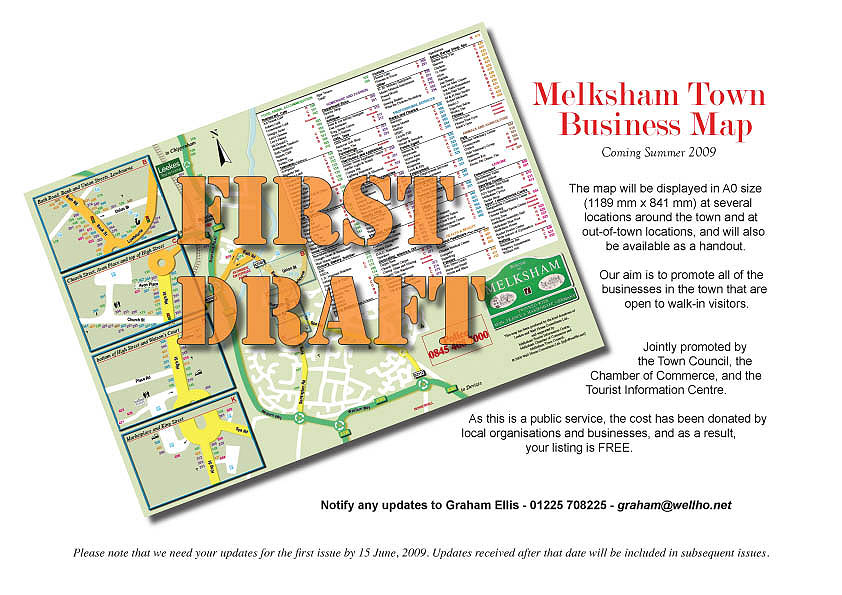 "Graham - don't forget to emphasise your work with the Chamber of Commerce" said one of my railway friends.
"Graham - don't forget to emphasise your work with the Chamber of Commerce" said one of my railway friends.I'm asking you, if you live in the South Ward of Melksham Town, to vote for me as one of your Town Councillors in the 6th May election. You may know me from helping bring a usable train service back to Melksham - where we now have four times the trains and twenty five times the journeys made. But did you know I was President of the Chamber of Commerce - usually a one year term - for 8 years up to 2017?
My final President's report, looking back over that period, is ((here)). The Chamber did a lot of good and difficult work during that period (and it was a difficult time for all Chambers too). Subjects I saw on the future agenda were:
* Neighbourhood Plan
* Road and public transport - e.g. new bypass and bridge
* Elections
* Campus and Skate Park
* Brexit (with international companies HQ'd in Melksham)
* Canal
* Healthcare Provision
* Housing and hotels
* Looking after an ageing population
In my report, I wrote "Modern businesses operators have little time for trade association meetings. They join (if it's made cheap or free, and easy) so that they have the backup of the association if they have problems, but rarely attend meetings. And indeed with local government having moved from being lightweight to employing tens of thousands of staff in the county, all of whom interact in some form or another with local residents and businesses, the Chambers have moved very much more towards concerns between local businesses and the infrastructure and service providers. " I note that, in Melksham, we have a town council that has taken much of the interacting and co-ordinating role and my comments of four years ago suggest this as being the sensible route to bring about such business support for their mutual (and mutual with the town and resident too) benefit.
Not only will I support businesses through the town council and other routes - I have a proven track record for so doing. Dozens more articles on the subject on my old blog ((here)). I'm still very much in the same page. Consistent too. Still partnering right across the spectrum
Published Friday, 23rd April 2021
Postal votes are arriving - please vote wisely
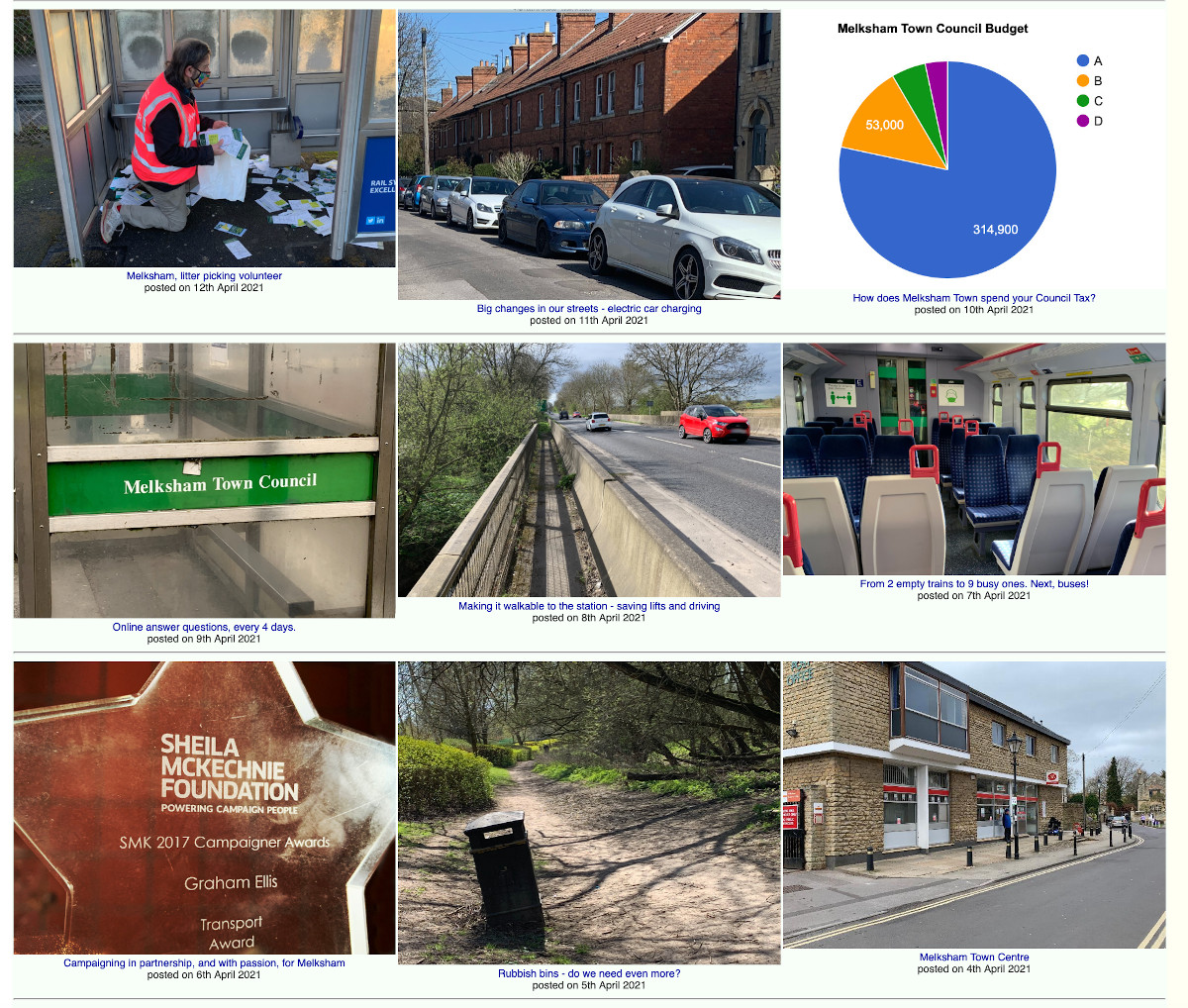 If you have registered for a postal vote in Wiltshire, you should receive it soon - first batch going out around now, second batch next week.
If you have registered for a postal vote in Wiltshire, you should receive it soon - first batch going out around now, second batch next week.Please vote GRAHAM ELLIS (Independent) for Town Council if you live in the South Ward of Melksham Town. You can vote for up to 4 candidates of the seven standing, and I would encourage you to read the material from the other candidates, decide who else you believe will do a good job, and vote for them too - irrespective of their political labels.
Every day for the last three weeks, I have posted my views / thoughts on key topics at http://grahamellis.uk/perm.html and invite you to read, share, and get back to me to ask questions too. Perhaps this isn't the best way to get the most votes, but I am being complete with what I say and am looking for your informed vote. It means you'll actually know what you're voting for. And if you read the detail, you'll learn that I live in the ward, have a track record and time to do the job (for that's what it is), and can be truly independent looking out in particular for Melksham voters rather than having split loyalties to political parties or groupings.
It is likely that the Melksham South Ward elections for Town Council will be close. So - please - if you have a postal vote, use it. And if you don't have a postal vote, please visit your polling station on 6th May and vote in person.
Amongst the 21 topics I have addresses (link above) so far:
* Promoting Melksham to visitors
* Rubbish bins and if we need more
* On the Melksham bypass
* Traffic congestion around schools
* How Melksham Town Council spends your money
* Litter Picking and Town Tidy
* How will we move to zero carbon
* Improving walking and cycling
* Campaigning and Partnering for Melksham
I am NOT standing for Wiltshire Unitary Councillor (nor Police and Crime Commissioner!!) as I believe that one job is enough for me, and that is plenty enough for me to do well.
Published Thursday, 22nd April 2021
Voting analysis - Melksham South Ward
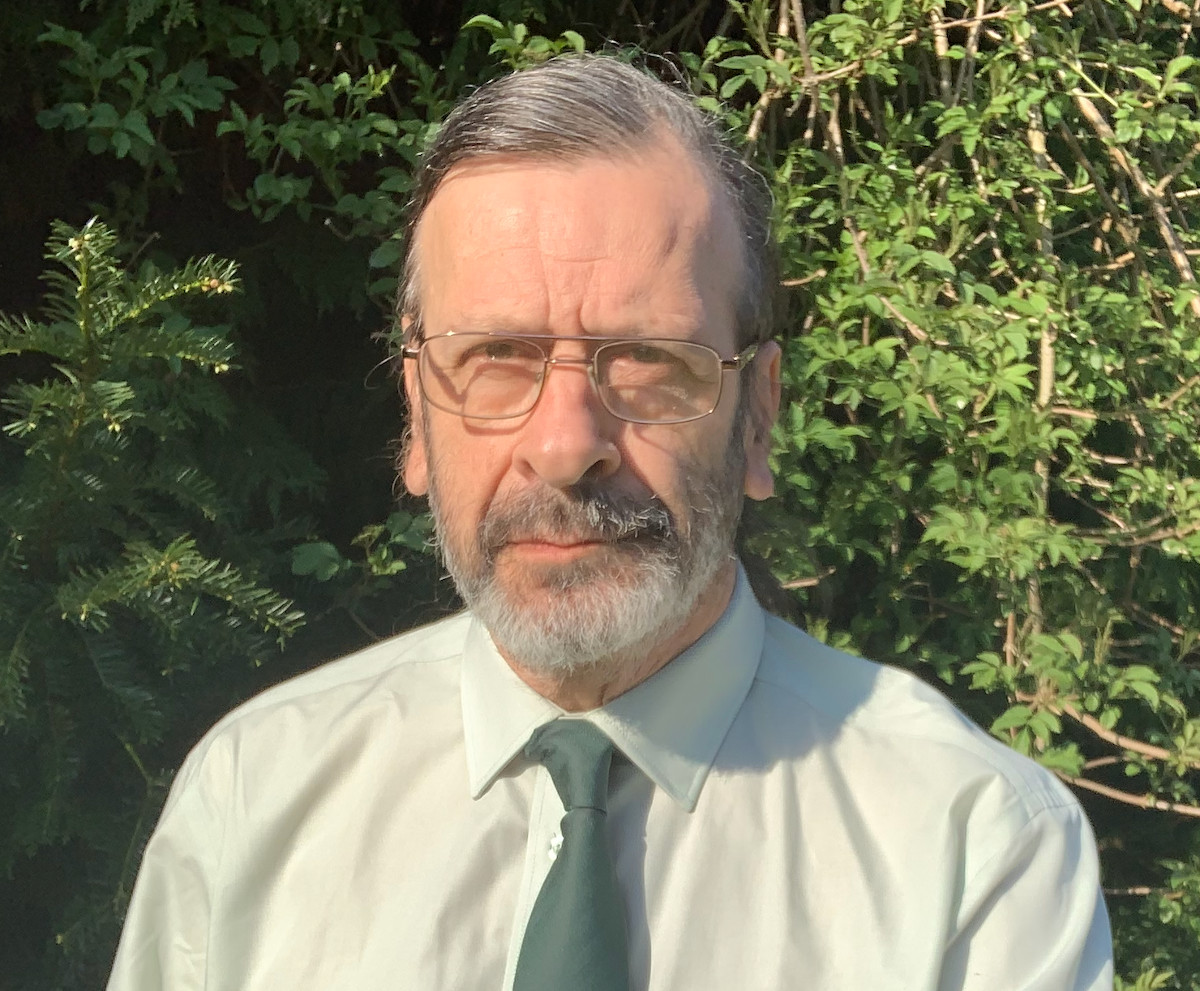 Every vote counts! In the last Town Council elections - five years ago - the difference between being elected and failing to be elected was just eleven votes. So you would have had a different council if just six people had voted the other way. All the closer when you note 15 spoiled papers. Ward boundaries have been redrawn significantly since; data above for the abolished Central ward, much of which is now included in the South Ward. Anyone's guess what will happen this time. Every vote counts!
Every vote counts! In the last Town Council elections - five years ago - the difference between being elected and failing to be elected was just eleven votes. So you would have had a different council if just six people had voted the other way. All the closer when you note 15 spoiled papers. Ward boundaries have been redrawn significantly since; data above for the abolished Central ward, much of which is now included in the South Ward. Anyone's guess what will happen this time. Every vote counts!Please, please vote - you CAN make a difference. I would encourage you to vote for me (Graham Ellis - Independent) (you can vote for up to three others as well). I have lived in Melksham for 20 years and been involved in many ways with the community, though I have never stood for council before; you may know me already, but if not (or if you want to know more) take a look at my leaflets or web site at http://grahamellis.uk/ or get in touch. Newly retired, I have the time to commit to the job, the health to do so, and the knowledge and experience of the town to help take it positively forward, unencumbered by a council or political track record or external loyalties.
I tend to analyse, to learn, to know where I stand. Some metrics: 18% of Wiltshire voters have applied for postal votes, and it would be fair to assume that there will be a good "turnout" amongst these voters. Last time, there was a 32% to 35% turnout. And that suggests to me that around a half of the votes cast will be by post, and the other half in person. Postal votes will be sent out around 21st April, second batch around 26th, to be returned to arrive by polling day on 6th May 2021.
There are seven candidates for four places. I would be reluctant to forecast the outcome except to say it's likely to be close-run. Every vote in Melksham South counts.
Published Wednesday, 21st April 2021
Improving Bus services - England to Melksham South
A really good Option 24/7 meeting last night - community members from all across the county (and a handful from a little beyond) looking at the future of buses in our suburban streets, between our towns, and serving our villages.Public transport use has been decimated by Covid and the restrictions imposed by it, and the Government's "Bus Back Better" initiative looks forward not only to bringing use back, but to taking things forward further.
Quoting from the Government line:
| Buses are at the centre of the public transport network, making 4.07 billion journeys in England in 2019/20 For decades, buses have been largely ignored by policymakers. Unlike rail, road aviation, cycling or walking, there was not – until now – a national strategy for buses. And unlike rail or road, buses have never – until now – had long-term funding commitments. Almost uniquely in the developed world, bus operators themselves, outside London, decide where most services are run and what to charge. COVID-19 has caused a significant shift from public transport to the private car. To avoid the worst effects of a car-led recovery – cities and towns grinding to a halt; pollution, road injuries, respiratory illness and carbon emissions all rising – we need to shift back quickly, by making radical improvements to local public transport as normal life returns. Buses are the quickest, easiest and cheapest way to do that. To achieve our goal, this strategy will make buses more frequent, more reliable, easier to understand and use, better co-ordinated and cheaper: in other words, more like London’s, where these type of improvements dramatically increased passenger numbers, reduced congestion, carbon and pollution, helped the disadvantaged and got motorists out of their cars. We want the same fully integrated service, the same simple, multi-modal tickets, the same increases in bus priority measures, the same high-quality information for passengers and, in larger places, the same turn-up-and-go frequencies. We want services that keep running into the evenings and at weekends |
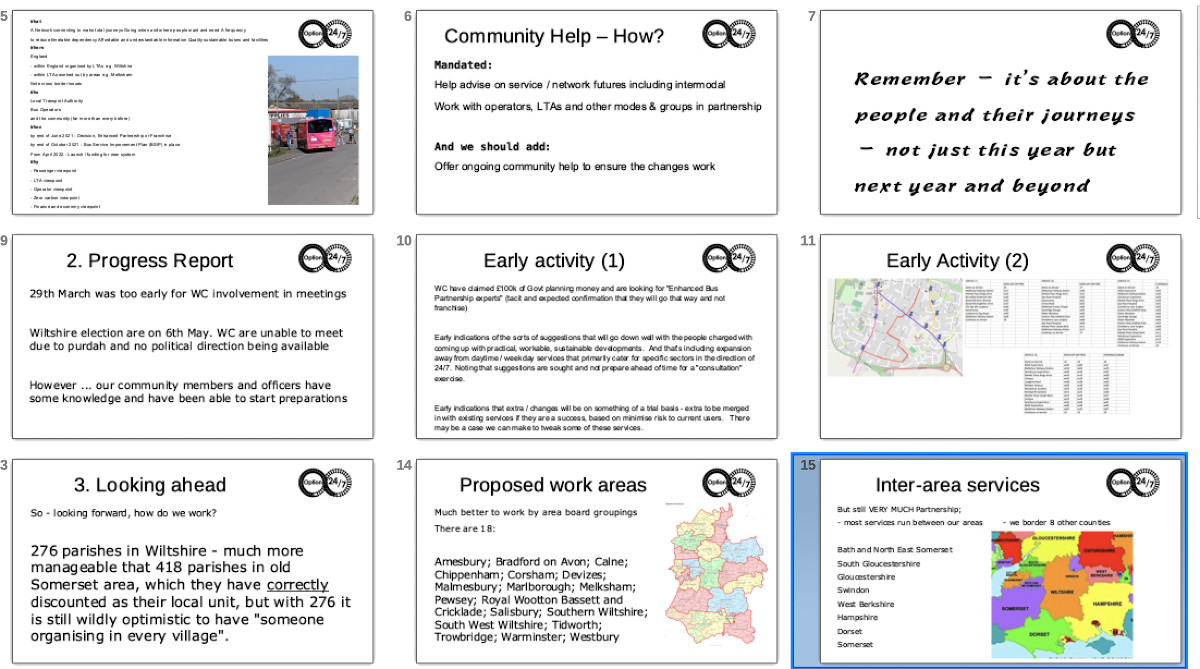 We note how well this aligns with what we (at Option 24/7 ) have been saying for years - "have they run with our idea" asked one of our team. They may have read what we've written, but what they have said and seen is common sense so it's no great surprise.
We note how well this aligns with what we (at Option 24/7 ) have been saying for years - "have they run with our idea" asked one of our team. They may have read what we've written, but what they have said and seen is common sense so it's no great surprise.I'm posting here on my campaign blog for a Melksham Town Council seat, but really the topic is wider - looking at the whole of Melksham, the whole of the Community Area, the whole of Wiltshire, and indeed beyond - looking at buses and other public transport as a connectional lifeline with inter-area services to no less that eight other authorities that border the community area.
It was my role last night to correlate and precise the data into a presentation, publicise the event, and deliver much of the content. Presentation is online ((here))
Published Tuesday, 20th April 2021
Promoting Melksham in Reading
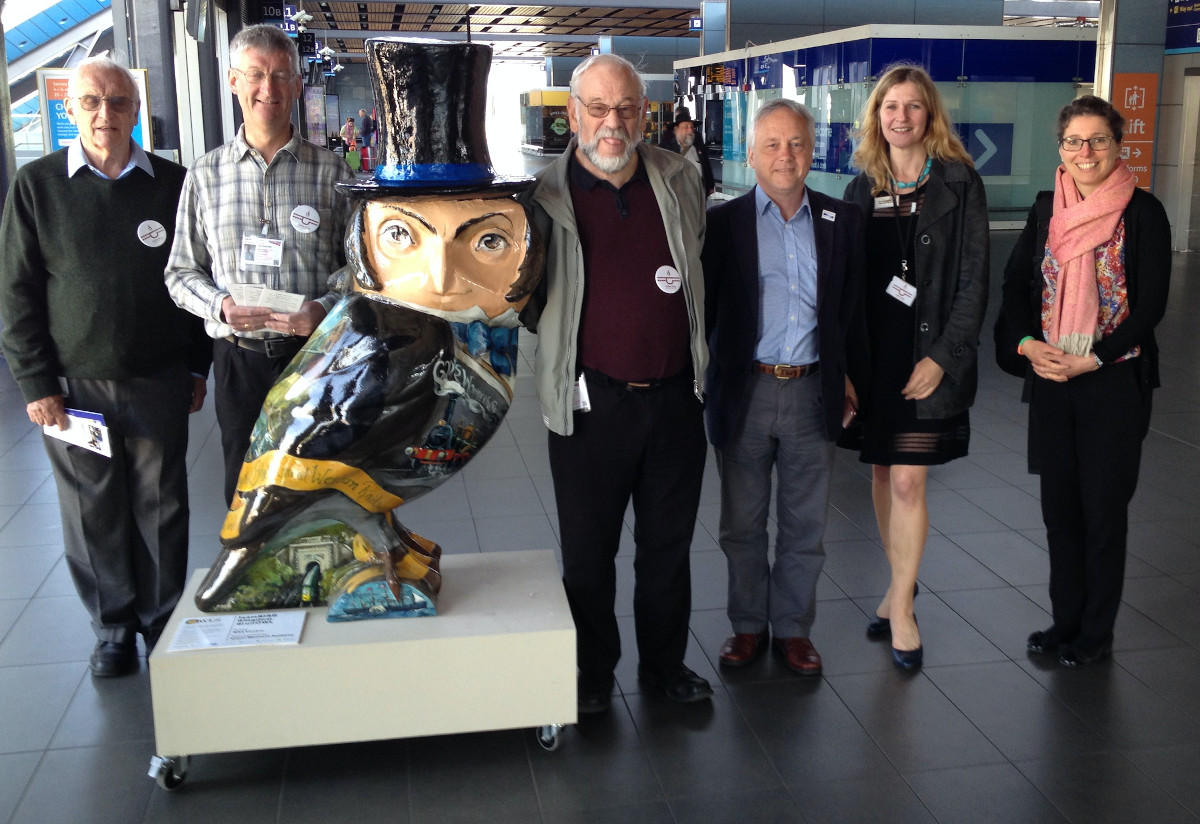 Looking back through old pictures yesterday, I came across this one of myself and friends promoting rail travel on the line through Melksham - "Community Rail" - in Reading, in May 2019. Very much a co-operative venture with data for Three Rivers, Heart of Wessex and Devon and Cornwall on our stand in Reading, and with our data on theres elsewhere at London (Waterloo), Birmingham New Street, and some other places too. Our own is "Isambird Kingdon BrownOwl" - one of the Owls of Bath from the previous year which we adopted at auction and now roosts at our home in Melksham.
Looking back through old pictures yesterday, I came across this one of myself and friends promoting rail travel on the line through Melksham - "Community Rail" - in Reading, in May 2019. Very much a co-operative venture with data for Three Rivers, Heart of Wessex and Devon and Cornwall on our stand in Reading, and with our data on theres elsewhere at London (Waterloo), Birmingham New Street, and some other places too. Our own is "Isambird Kingdon BrownOwl" - one of the Owls of Bath from the previous year which we adopted at auction and now roosts at our home in Melksham.Melksham is a town ripe to attract tourists, especially given the expected move towards more domestic holidays. Working with folks like Visit Wiltshire (where we were members when I ran the hotel) and the Community Rail Network, we can and could do a great deal more to attract visitors in. Although Melksham was the largest town for many a mile some 200 years ago, and has a wealth of history and historic buildings, it really doesn't present itself for visitors. As a hotel, our biggest leisure business was people staying with us to see Bath, less than 10 miles away, and attarcted by better hotel prices. Many said what a lovely town it is, but much of the benefit of that is untapped.
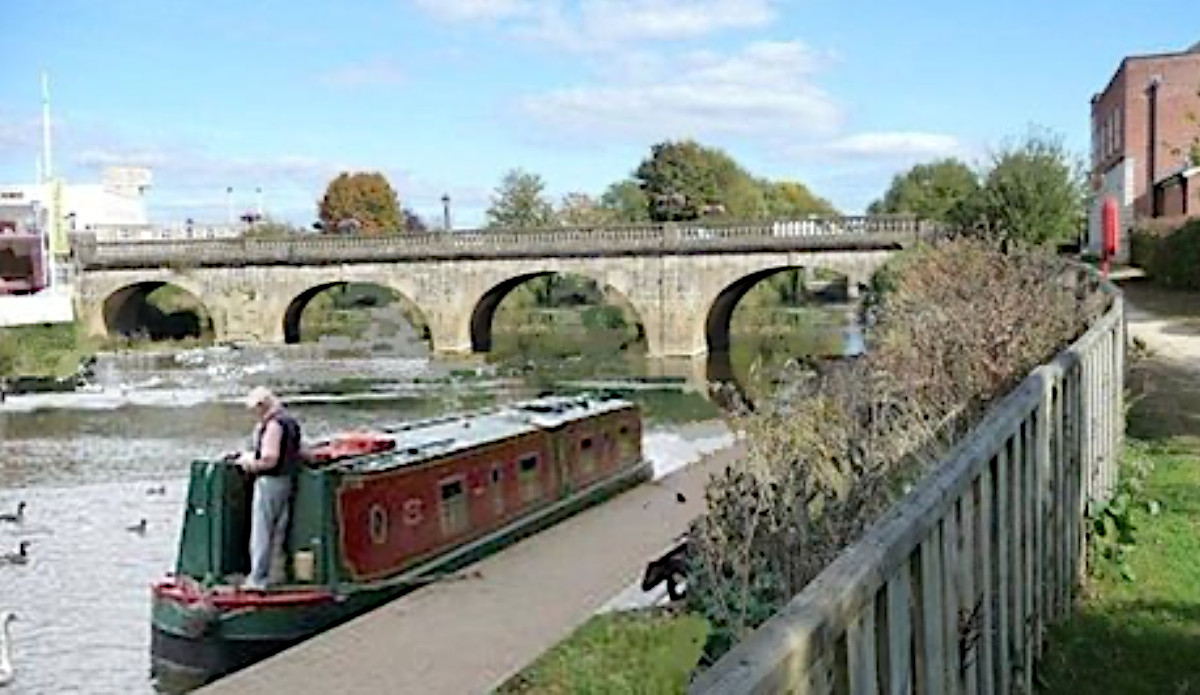 People do need something to attract them ... I am not suggesting a big marketing campaign this summer - yes, there is history, but what is there to do? No theme park behind Melksham House, no nature trails in the forest, not yet boats to see and cafes and shops on the riveside. But the riverside, and the Berks and Wilts Canal, is a portent of things to come.
People do need something to attract them ... I am not suggesting a big marketing campaign this summer - yes, there is history, but what is there to do? No theme park behind Melksham House, no nature trails in the forest, not yet boats to see and cafes and shops on the riveside. But the riverside, and the Berks and Wilts Canal, is a portent of things to come.The countryside around is lovely too - I'm not really (am I?) suggesting people come to Melksham and then go out again, but it's a wonderful base for the Kennet and Avon, Bradford-on-Avon, Devizes, Lacock, The Courts and those little hidden gems such as our own Pack Horse Bridge. I'm told that the Melksham area offers rich viewing for electricty plyon enthusiasts too, though that's probably too small a specialist group to make a significant economic difference to the town.
Published Monday, 19th April 2021
Melksham Bypass - answering "are you for or against"?
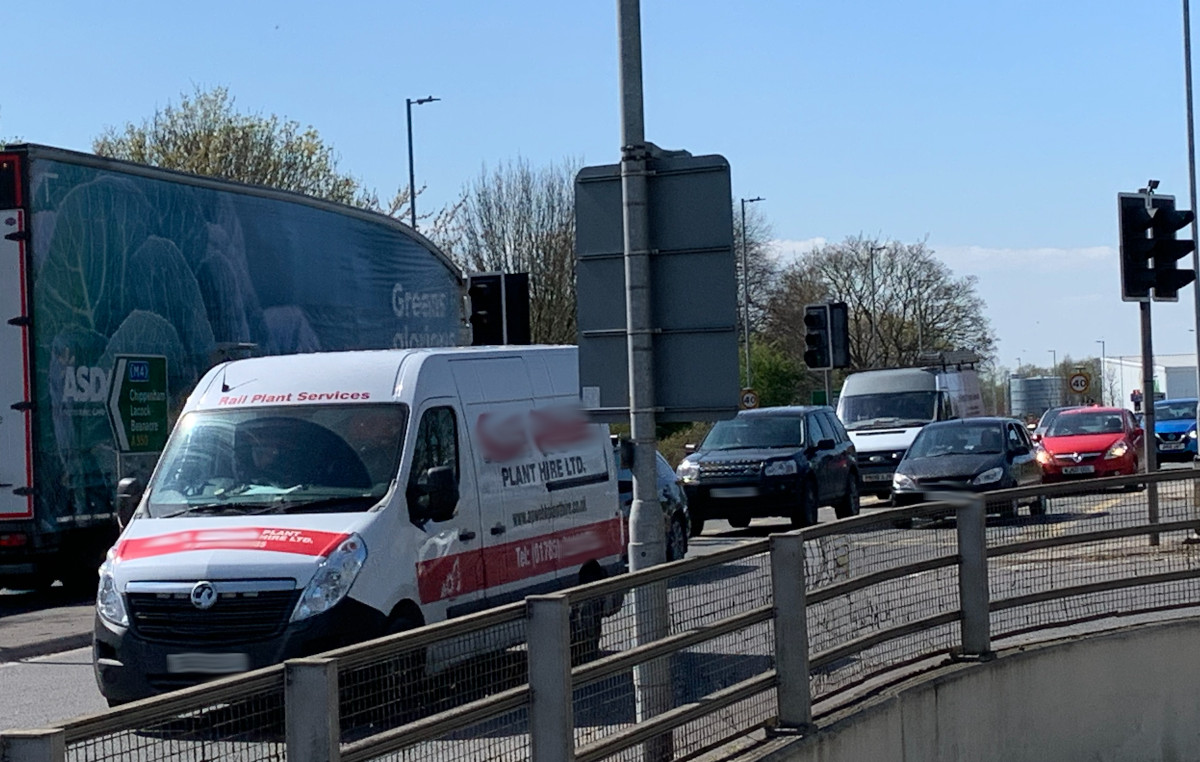 Melksham has a traffic congestion around its outskirts. In particular, this is on the road used by traffic headed between north and south, with pinch points in the Melksham North ward. The congestion leads to delays ... effect on the economy, effect on air quality, safety issues, unpleasant to live nearby, separates the town from the northwestern area and the railway station.
Melksham has a traffic congestion around its outskirts. In particular, this is on the road used by traffic headed between north and south, with pinch points in the Melksham North ward. The congestion leads to delays ... effect on the economy, effect on air quality, safety issues, unpleasant to live nearby, separates the town from the northwestern area and the railway station. There are other issues too. Traffic through Beanacre, through the town centre headed towards Calne, and the road out through Woodrow.
Where are things changing? What's needed for the future?
1. With the closure (for how long?) of the Cleveland Bridge in Bath, much of the heavy traffic that's gone across / through there is the past is spilling into Wiltshire, and passing past Melksham on the A350.
2. The introduction of the Clean Air Zone in Bath also encourages heavy traffic into Wiltshire - £100 extra cost going through Bath is more than the extra cost of driving through Wiltshire
3. Towns to the south are growing, adding more vehicles passing Melksham on their way to the motorway
4. Melksham is growing too - and the natural way out for many of the homes and businesses coming is also via the A350 up towards the M4
5. Coronavirus has encouraged people to use private transport (cars) in preference to public transport - as I write, car traffic looks pretty much back up to where it was before the first lockdown, but public transport use is well down.
All of those suggest increase traffic ... but on the other hand
A. If people are working from home more, they will be commuting to work less
B. As we move towards Zero Carbon, we'll be replacing 'dirty' cars with cleaner ones - though on its own this will mean replacing dirty queues with cleaner queues - good score but no bullseye
C. As we come off Coronavirus, we now have an opportunity to rebuild public transport use, and taxation and other government policy can influence this.
D. As vehicles become more and more electric, Bath's Clean Air Zone will apply to fewer and fewer vehicles and less traffic will divert.
E. The Cleveland Bridge might reopen, or the MRUG suggestion of shortening journeys by linking the A36 and A46 may be considered as a less intrusive road scheme which would result in lower mileage.
Discussion
Interventions short of building a complete new bypass may be effective in providing for future traffic levels considerably lower that would have been expected in forecasts made a couple of years ago. Some of these were in the recent consultation, though there is a view in some quarters that they were included at this stage so they can be ruled out early on and not subject to successful challenge later.
It is impossible (in my view) to accurately forecast traffic levels 10, 20, 30 years ahead, especially at the current time. Yes, we can probably get some idea but there will be a wide splay of uncertainty. The nature of roads is that they cope up to a certain point and then a relatively little extra traffic causes them to fall over with congestion, and regular users looking for alternatives - often inappropriate rat runs. Put those two things together, and Wiltshire Council has a real problem working out what to do for parts of the A350, including Chippenham, Melksham, Yarnbrook and Westbury. Their difficulty is compounded by a potential need to take steps that take years ahead of the situation getting too bad.
I am concerned at the "de facto" standard that seems to be set for the A350 to become the North-South route of choice, rather than the current A36 / A46 trunk routes. I can understand the desire from a "keep it in our county" perspective, and indeed now within the Western Gateway SNTB; the A36 / A46 strays into Somerset which is in Western PENINSULAR. I am also concerned at the separation of the Melksham Bypass consultation from the Wiltshire local plan consultation; asking about housing to be served by the new bypass during that consultation elicited an "out of bounds" response from Wiltshire Council and rendered the consultation far less useful. I wonder if that was intentional.
So - my answer to "are you for or against?"
I started writing this to answer the question, in the lead up to the elections, as to whether I am for or against the Melksham Bypass, and whether or not I will say one thing in public and then take a different approach in private / later on.
At the moment, I don't know if I am for or against. I would PREFER other measures and solutions such as improving the current trunk route rather than creating a new one, and such providing much improved and greener public transport so that private car traffic levels, and fossil fuelled lorries, are reduced. Whether those can go far enough, I don't (yet) know. There may be a case for some relatively small road interventions short of a bypass (and indeed we have already seen some) and interventions which make a substantial difference to greener ways of travelling too.
I can and will listen to what people ask / tell me - but I'm aware that one man's reduction of congestion is another's lost walk down to the canal. And I'm also aware that as a Town Councillor, I'll only have a position from which I can persuade and explain, and not be a decision maker. I can promise that whatever the outcome, I will do what I believe is best, and I will keep checking back with people in the town to check that I remain inline and haven't overlooked elements. Some decisions on a strategic route WILL need to me made for the greater good of the region as a whole, and may not be best for Melksham.
Looking ahead to the future, as plans develop
I will also take a pragmatic view, in that even if a decision is taken with which I and the ward do not agree, I will stand for getting the most appropriate outcome for the ward in that final solution, and I will not take the position of complaining in a pure negative way such that we get nothing. Example - bypass gets built to the east ... OK then, we need to provide foot and cycle ways over a reduced-traffic Challeymead bridge to bring the Hazelwood Road area a pleasant walk and cycle to Asda, Aldi, Leekes, McDonalds and to the railway station.
Perhaps I could gain votes by running a petition or survey to rally the troops. I see it going on elsewhere in the area, with a current councillor pointing at an external "bogey man" when he himself appears to have been caught napping. I don't expect to hear much more after 6th May. Yuk.
If you have read this far - THANK YOU. Sorry it wasn't a "yes / no" answer, but it's an answer that should set the scene for what I am and where I stand for coming years, not just the next 3 weeks. And you can look back at all my old personal blogs and records - chamber of commerce at http://www.wellho.net/resources/Z402.html - public transport (rail) at http://www.wellho.net/resources/Z501.html - cycling and walking at http://www.wellho.net/resources/Z531.html - politics and religion at http://www.wellho.net/resources/Z300.html - buses at http://www.wellho.net/resources/Z511.html . Proud to stand by those; nothing deleted ... all in the open. Current writings at http://grahamellis.uk/perm.html
Published Sunday, 18th April 2021